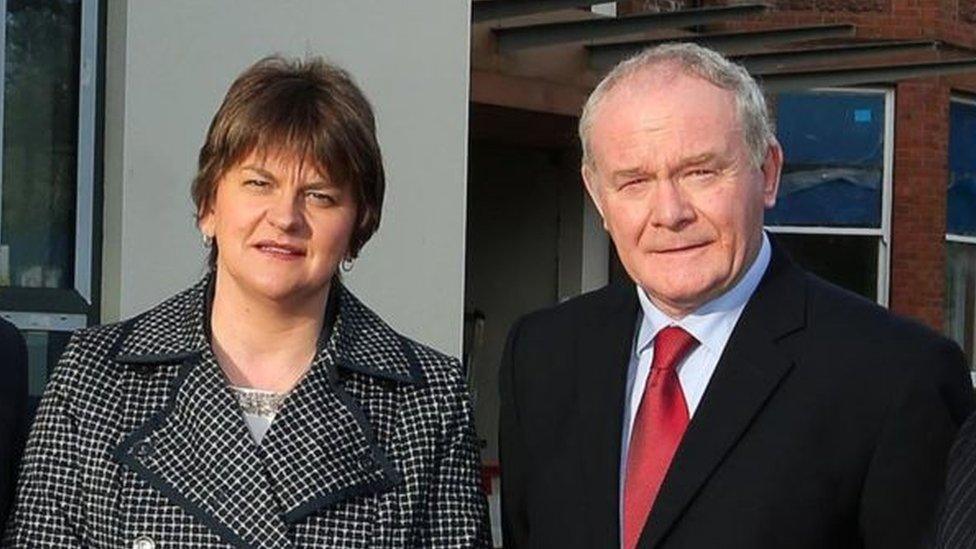Conservative conference: Being mistaken for the prime minister
- Published
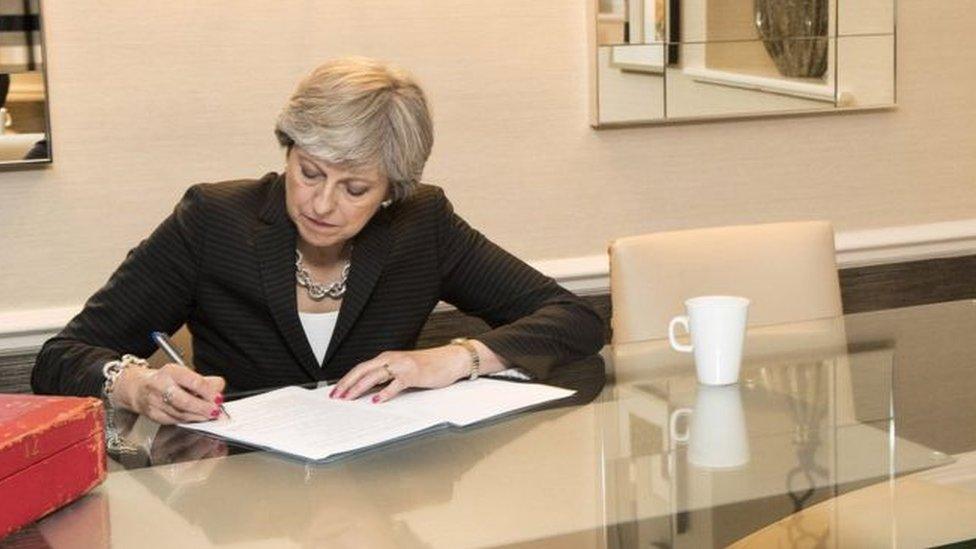
Theresa May will address the Conservative conference on Wednesday
I'm used to being mistaken for someone else.
One of the by products of being an occasional face on people's TV screens is that sometimes, when you are at the supermarket, another shopper will assume you must be a neighbour or an old acquaintance.
However, the reception for the Northern Ireland Conservatives at the party conference in Manchester was the first and, I imagine, the last time when I have been mistaken for the prime minister.
After a live broadcast on BBC Newsline, I arrived late for the reception, unaware that my colleague Stephen Walker had already been politely asked to leave on the grounds that it was a private party.
As I walked through the door, the room erupted into cheers.
I spotted Secretary of State James Brokenshire looking just as bemused as me.
It turned out that the master of ceremonies had told the audience that the next person through the door would be Theresa May.
I didn't have long to bask in the adulation before the roar petered out.
Within a few seconds, the real prime minister arrived and told her party faithful that she would do her utmost to restore devolution and would ensure, when it comes to Brexit, that there is no hard border.
The staff had a quick turn around getting the very same room ready for the DUP's fringe event.
Unlike last year, this wasn't billed as a champagne reception, but the mood was celebratory.
'Not a temporary deal'
The DUP leader, Arlene Foster, thanked Tory activists in the packed room for their interest.
Senior Conservatives like Deputy Prime Minister Damian Green and Brexit Secretary David Davis mingled with DUP politicians at the event.
Nigel Dodds assured the Tories that their Westminster deal isn't a temporary two-year arrangement, but a robust understanding which will last for the duration of this parliament.
Pledges that the UK had voted for Brexit as a single nation and would leave the EU as a single nation got loud applause from the activists.
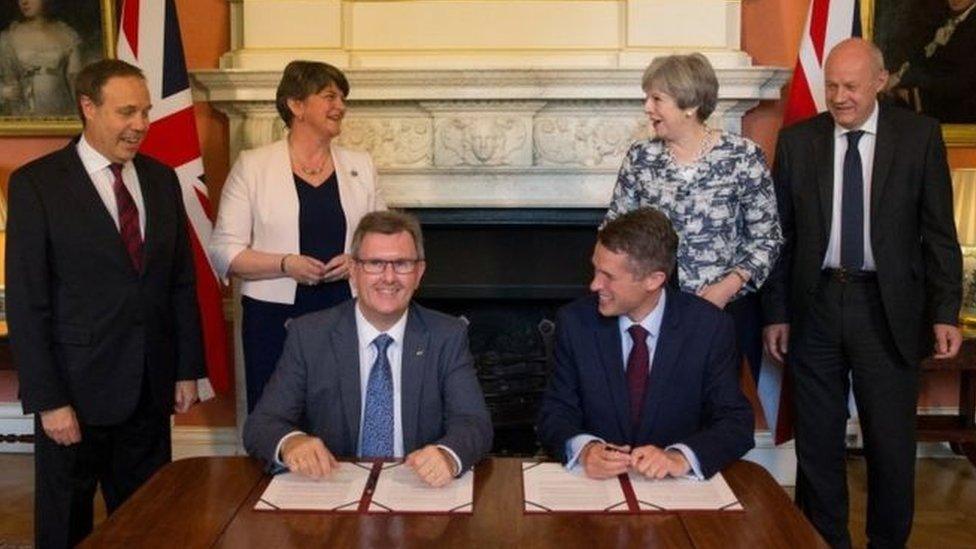
It is the first Conservative conference since the DUP-Tory pact was signed in June
In contrast to the days when David Cameron flirted with the Ulster Unionists, there is no doubt the DUP is now much closer to the Conservative leadership.
Arlene Foster, though, insists her party won't let holding the balance of power go to its head.
Instead of concentrating on London, she says the DUP wants to operate both Westminster and Stormont in tandem.
But will they get the chance to occupy that dual role?
Stormont deadlock
In recent weeks, the Irish government and a number of Stormont sources have been talking up a supposed upbeat problem-solving mood between the DUP and Sinn Féin, facilitated by intensive discussions away from the media spotlight.
However, that optimism didn't stand up well to the brief public scrutiny provided by Arlene Foster and Michelle O'Neill's joint appearance at the Champ Ulster Fry event on the margins of the Conservative conference.
Rather than carefully coordinating their messages the potential first and deputy first ministers publicly disagreed over Northern Ireland's "Britishness".
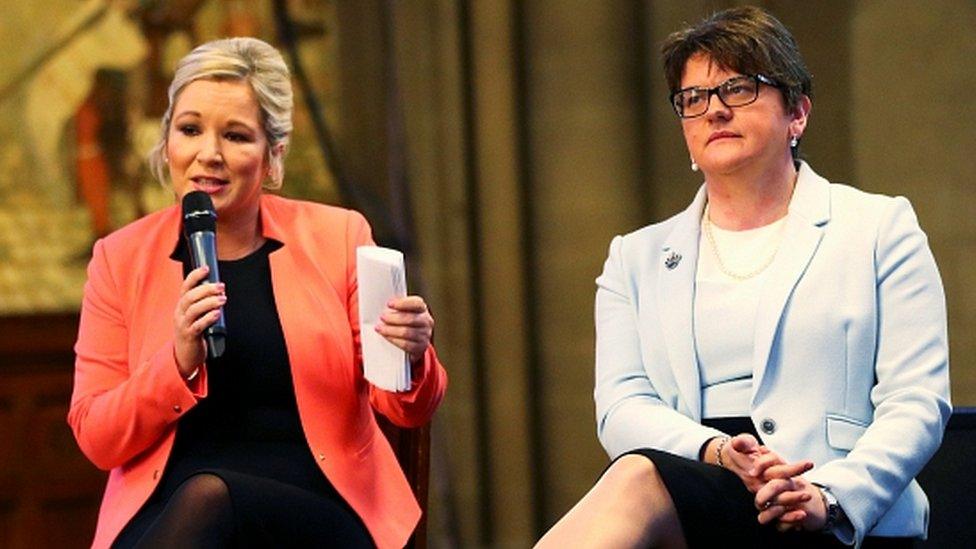
The DUP and Sinn Féin politicians disagreed on the role Northern Ireland should have after the UK leaves the EU
Later, Mrs Foster criticised what she claimed was the "aggressive" tone of Ms O'Neill's speech.
It's hard to say whether this tolls the death knell for the next week to 10 days of talks, which the DUP leader believes is all the negotiations have left to run.
Or will it be remembered as a mere glitch before the two parties find some kind of creative compromise to resolve their stand off over language legislation?
Some say the prime minister should get more directly involved.
If she can't, maybe I should try my impersonation all over again.
- Published3 October 2017
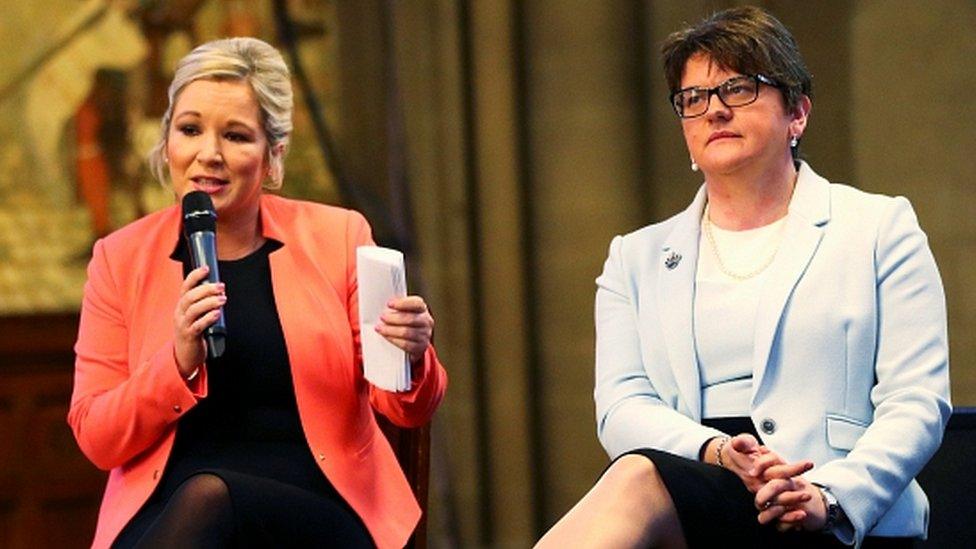
- Published22 September 2017
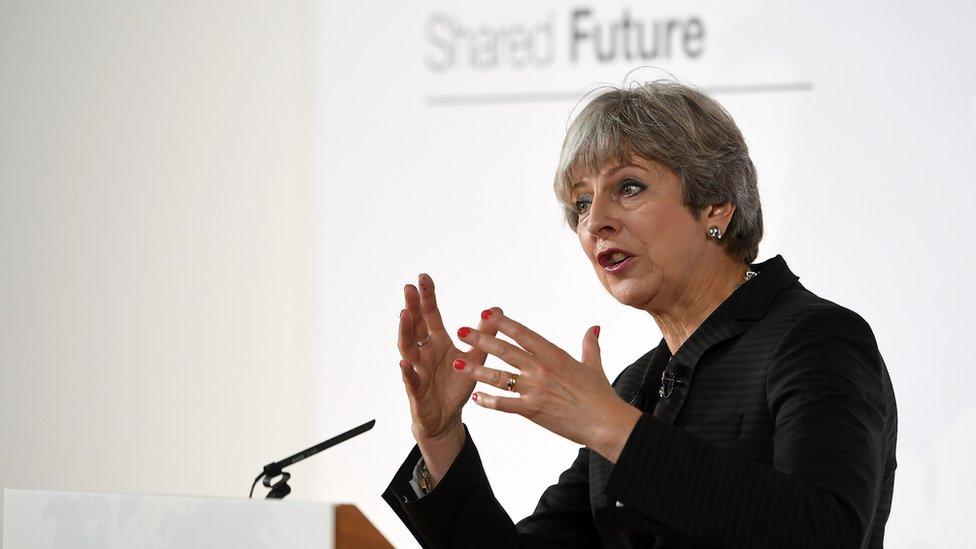
- Published26 June 2017
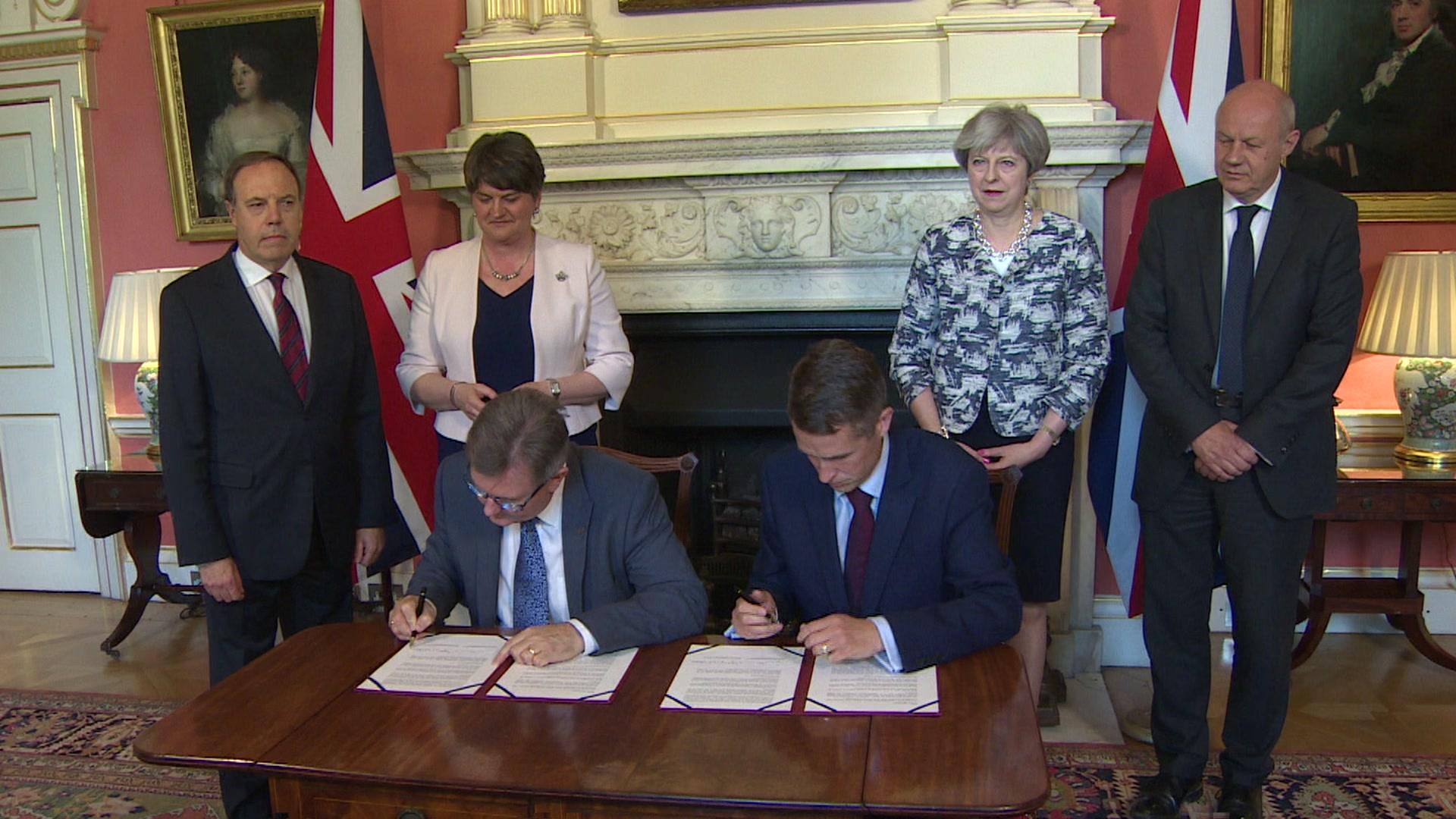
- Published16 January 2017
